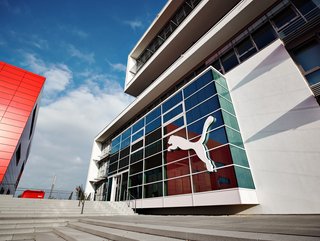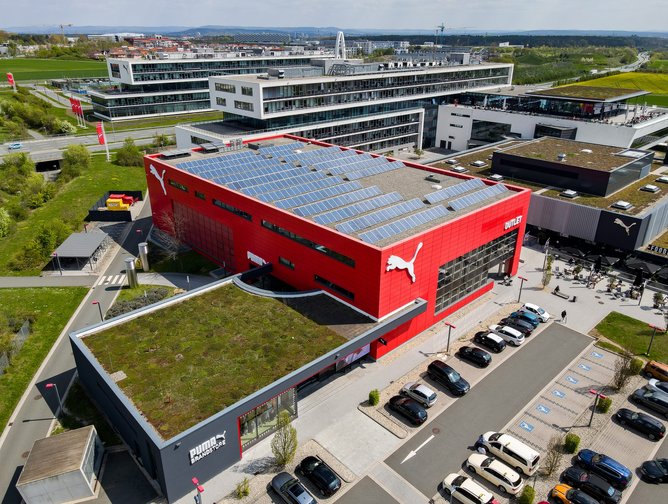How Puma is Working with Suppliers to cut Emissions

In conjunction with strong sales growth, Puma reduced its greenhouse gas emissions (GHG) by an impressive 24% in 2023 compared to 2022.
It’s an improvement being made possible by numerous contributing factors, not least its core suppliers doubling their own use of renewable energy last year.
Puma is also:
- Increasing the use of less carbon-intensive materials in its products
- Benefitting from the introduction of low-carbon shipment tariffs by logistics partner Maersk
- Using renewable electricity or purchasing renewable energy certificates at its own operations
- Investing in EVs across its fleet of cars
In fact, when compared to the baseline figure from 2017, the sportswear giant is reporting an absolute GHG reduction of 29% – in part thanks to a series of bold strategies across its wider supply chain function.
Puma: FOREVER.BETTER.
Puma’s sustainability efforts are underpinned by its FOREVER.BETTER. strategy, a belief that sustainability should be integrated into every aspect of manufacturing processes for all products – from the sourcing of raw materials to the manufacturing stage, both environmentally and socially.
This is based on the 10FOR25 targets it established in 2019, a list of key areas where the company is focused on improving.
“We’re very proud of the progress we have achieved on our sustainability journey in 2023, particularly when it comes to the reduction of greenhouse gases,” comments Anne-Laure Descours, Chief Sourcing Officer at Puma.
“We will not stop there, however, and continue to execute our FOREVER.BETTER. sustainability strategy and our 10FOR25 targets.”
Progress in the procurement space has included increasing the sourcing and use of recycled materials in 2023. A significant proportion of eight in every 10 products were produced recycled or certified materials.
Beginning in 2024, almost all of Puma’s range of replica football jerseys are being made using Puma’s RE:FIBRE recycling technology, which focuses on polyester textile waste as the primary source of material.

Puma's supply chain progress
Puma is also making progress in the supply chain space.
From a human rights perspective, the organisation is training more than 220,000 factory workers on women’s empowerment, while completely mapping subcontractors and Tier 2 suppliers for human rights risks.
Helped by the procurement aspect of its sustainability strategy, Puma is currently working several years ahead of its initial set of targets. With an 85% reduction of its own emissions and a 65% decline in supply chain emissions relative to sales, the business achieved its first science-based greenhouse gas reduction target in 2023 – seven years ahead of schedule.
Puma’s new climate goals—approved by the Science Based Targets initiative (SBTi)—are aimed at reducing emissions by the amount scientists say is necessary to keep global warming below 1.5 degrees.
By 2030, Puma wants to reduce its absolute Scope 1 and 2 GHG emissions by 90% from a 2017 baseline figure. The SBTi has, meanwhile, classified the firm’s Scope 1 and 2 targets as being in line with a 1.5-degree trajectory.
Over the same period, Puma is committed to reducing absolute Scope 3 GHG emissions from its supply chain and logistics by 33% compared to 2017.
******
Make sure you check out the latest edition of Procurement Magazine and also sign up to our global conference series - Procurement & Supply Chain LIVE 2024.
******
Procurement Magazine is a BizClik brand.






